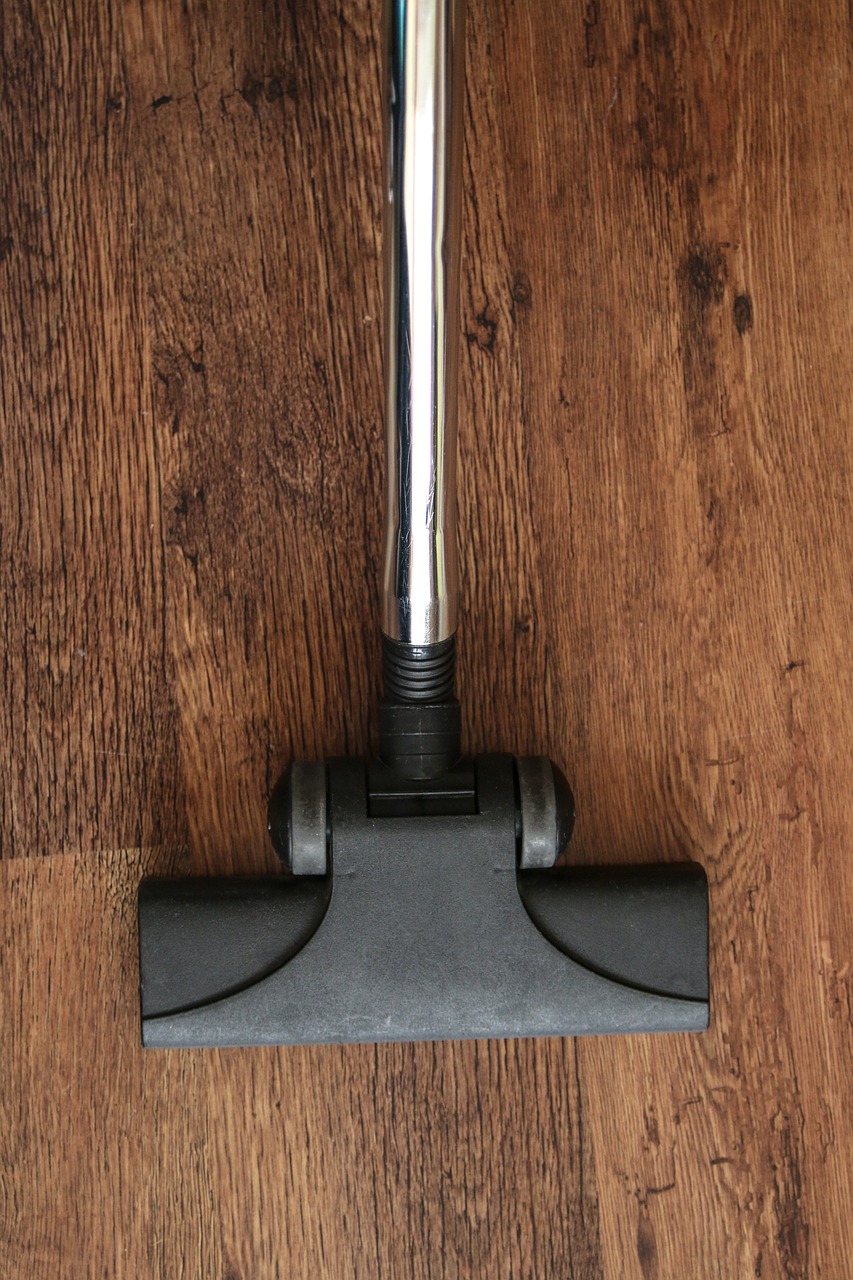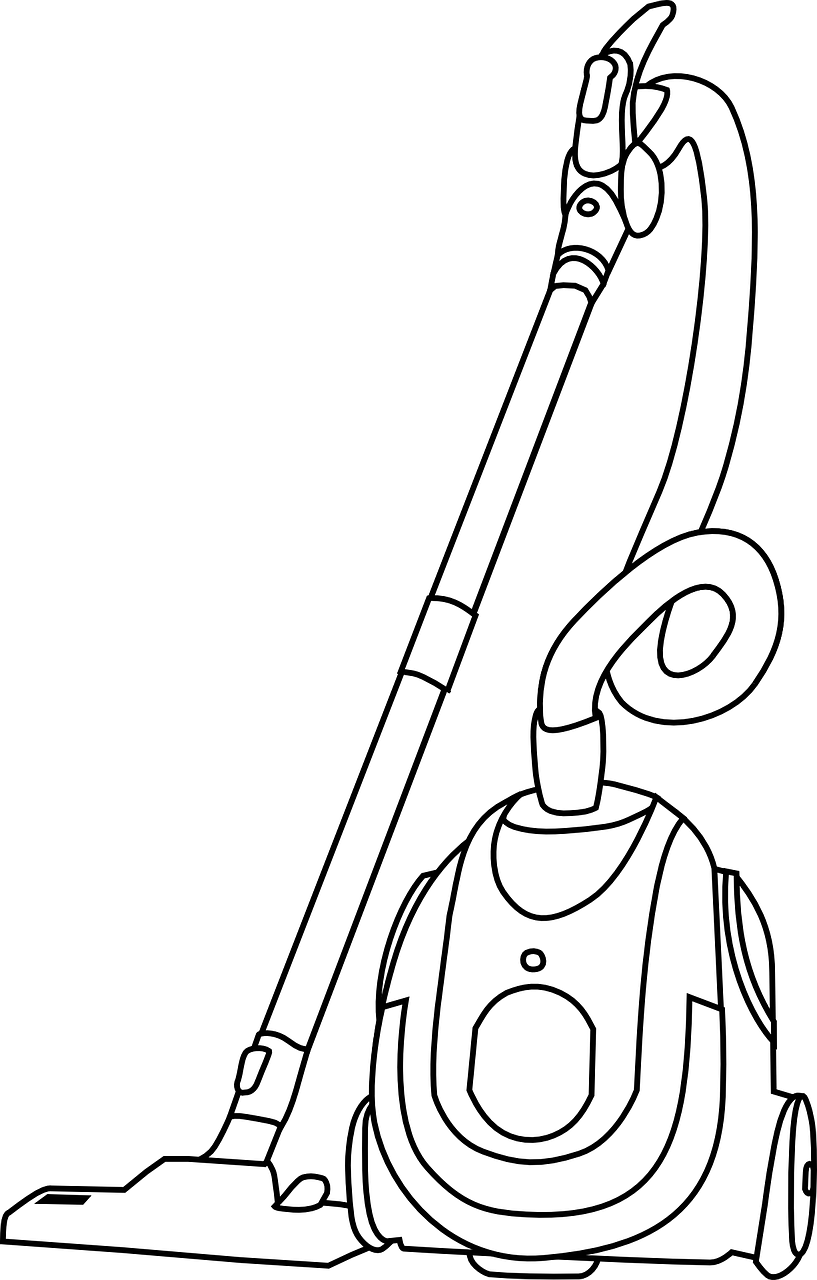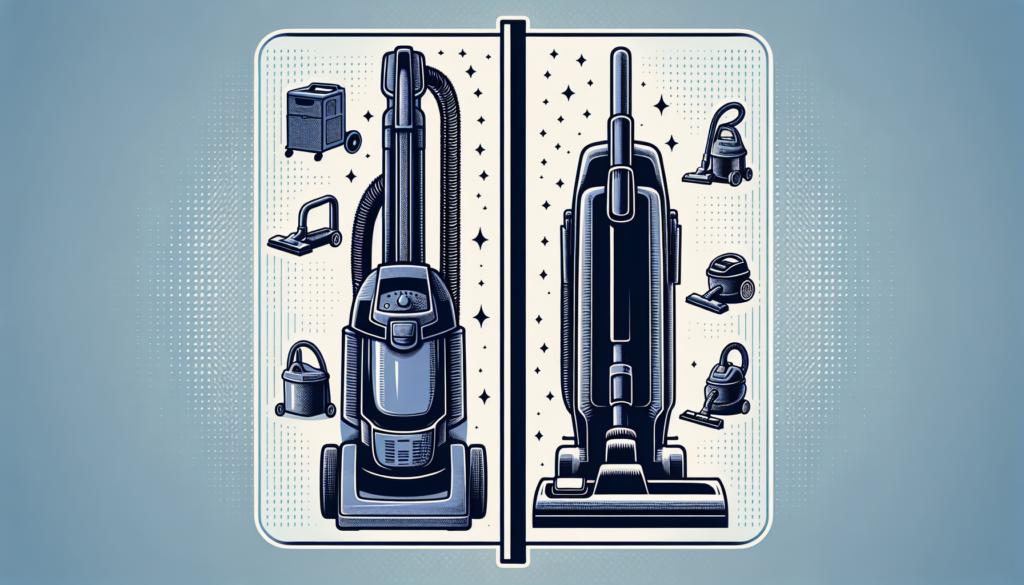Looking to purchase a new vacuum cleaner? Look no further! BuySellCloud.com is here to help you make an informed decision. With our expert buying guides, you will have all the information you need to confidently choose the right vacuum cleaner for your home. We provide comprehensive product insights and tips, ensuring that you find the perfect vacuum cleaner that meets all your cleaning needs. Say goodbye to dusty floors and hello to a cleaner home!
Budget
When it comes to buying a vacuum cleaner, it’s important to determine your budget right from the start. Vacuum cleaners come in a wide range of prices, so it’s essential to figure out how much you’re willing to spend before you start shopping. Set a budget that suits your needs and preferences, keeping in mind that higher-priced models often offer more advanced features and technologies.

Determining your budget
To determine your budget, consider factors such as your cleaning needs, the size of your home, and the frequency of vacuuming. If you have a large house with multiple floors and pets, you might want to invest in a higher-end vacuum cleaner that can handle those specific requirements. On the other hand, if you have a smaller space and minimal cleaning needs, a budget-friendly option might suffice.
Comparing prices
Once you have determined your budget, it’s time to compare prices. Look for vacuum cleaners within your price range and compare their features, performance, and customer reviews. Don’t forget to check for any ongoing sales or promotional offers that could help you get more value for your money. Remember that a higher price doesn’t always guarantee better performance, so make sure to read reviews and consider the overall value the vacuum cleaner offers.
Considering long-term costs
While the initial cost of the vacuum cleaner is important, it’s also crucial to consider the long-term costs associated with owning one. Some vacuum cleaners require specific bags or filters that need to be replaced periodically, which can add to the overall cost of maintenance. On the other hand, bagless vacuum cleaners may require regular cleaning of filters, but eliminate the need for additional purchases. Think about the ongoing maintenance requirements and costs when making your decision.
Type of vacuum cleaner
There are several types of vacuum cleaners available, each designed for different cleaning needs and preferences. Understanding the different types will help you find the one that best suits your requirements.
Upright
Upright vacuum cleaners are popular and versatile. They are designed for deep cleaning carpets and usually come with rotating brushes that agitate the carpet fibers to remove embedded dirt and debris. They are also suitable for cleaning large areas quickly due to their wider cleaning path. Upright vacuums often have a larger dustbin or bag capacity, reducing the need for frequent emptying or replacing.
Canister
Canister vacuum cleaners consist of a separate canister unit connected to a wand and cleaning head. They are known for their flexibility and maneuverability, making them ideal for cleaning stairs, under furniture, and other hard-to-reach areas. Canister vacuums typically have a range of attachments for different cleaning tasks and floor types. They are also often lighter and easier to carry than upright models.
Stick
Stick vacuum cleaners are lightweight and convenient, making them a great choice for quick clean-ups and small spaces. They are usually cordless and have a slim design, allowing users to easily maneuver around furniture and other obstacles. Stick vacuums are commonly used on hardwood floors and low-pile carpets. However, they may not have the same suction power and capacity as larger vacuum cleaners.
Robot
Robot vacuum cleaners have gained popularity in recent years, offering the convenience of automated cleaning. These compact devices can navigate through your home, vacuuming the floors while you go about your day. Robot vacuums are especially useful for daily maintenance and can often be scheduled to clean at specific times. They are best suited for homes with mostly hard floors and minimal carpeting.
Handheld
Handheld vacuum cleaners are compact, lightweight, and portable. They are designed for quick spot cleaning and reaching tight spaces such as corners, upholstery, and car interiors. Handheld vacuums are ideal for small messes and are often cordless for added convenience. While they may lack the power and capacity of larger vacuums, they are handy for on-the-go cleaning tasks.
Convertible
Convertible vacuum cleaners offer the best of both worlds by combining the features of an upright and a canister vacuum. They often come with a detachable canister unit, allowing users to switch between upright and canister modes based on their cleaning needs. Convertible vacuums offer the flexibility to tackle different surfaces and areas without purchasing multiple vacuum cleaners.
Flooring type
The type of flooring you have plays a significant role in determining the right vacuum cleaner for your needs. Different vacuum cleaners are designed to effectively clean specific flooring types.
Carpet
If you have wall-to-wall carpets or significant carpeted areas, it’s essential to choose a vacuum cleaner that is specifically designed for carpet cleaning. Look for vacuum cleaners with adjustable height settings and beater brushes or rotating brushes. These features will help agitate the carpet fibers and remove dirt and debris effectively.
Hardwood
When it comes to cleaning hardwood floors, it’s important to find a vacuum cleaner that won’t scratch or damage the surface. Look for models with soft bristle brushes or those specifically designed for bare floors. Some vacuum cleaners also offer a hardwood floor setting that adjusts the suction power to prevent scratching.

Tile
Tile floors require a vacuum cleaner that can effectively remove dirt and debris from the grout lines as well as the tiles. Look for vacuum cleaners with strong suction power and attachments such as crevice tools or specialized floor heads for tile cleaning. Opt for models that offer adjustable brush settings to prevent any potential scratching.
Laminate
Laminate floors are susceptible to scratches and water damage, so it’s important to choose a vacuum cleaner that is gentle and safe for this type of flooring. Look for models with soft brushes or those specifically designed for laminate floors. Avoid using steam cleaners or wet vacuums on laminate floors, as excessive moisture can cause damage.
Vinyl
Vinyl floors are generally durable and easy to clean, but it’s still important to find a vacuum cleaner that won’t scratch or damage the surface. Look for models with soft bristle brushes or those specifically designed for vinyl flooring. Adjustable suction power is also beneficial to prevent the vacuum from sticking to the floor.
Concrete
Concrete floors can be found in basements, garages, or industrial spaces. They require a robust vacuum cleaner that can handle heavy-duty cleaning. Look for models with strong suction power and durable construction. Vacuum cleaners with detachable hoses and additional attachments are also useful for reaching corners and crevices in concrete floors.
Cleaning needs
Your specific cleaning needs and priorities will help you determine the most suitable vacuum cleaner features and accessories. Consider the following factors when choosing a vacuum cleaner tailored to your cleaning requirements.
Pet hair
If you have pets that shed, it’s crucial to find a vacuum cleaner with specialized tools and features for pet hair removal. Look for models with pet hair attachments or brushes designed to effectively capture and remove pet hair from different surfaces. HEPA filtration is also beneficial to prevent pet dander and allergens from being released back into the air.
Allergies
If you or your family members suffer from allergies or asthma, look for vacuum cleaners with advanced filtration systems. HEPA (High-Efficiency Particulate Air) filtration is highly recommended, as it can trap small particles such as pollen, dust mites, and pet dander. Some vacuum cleaners even offer allergy-friendly filters that can further reduce allergens in the air.
High traffic areas
Consider the areas in your home with the highest foot traffic, such as entryways, living rooms, or hallways. These areas often accumulate more dirt, dust, and debris, requiring frequent and effective cleaning. Look for vacuum cleaners with strong suction power and versatile attachments to tackle high traffic areas effectively.
Stairs
Cleaning stairs can be challenging, especially with bulky vacuum cleaners. If you have multiple levels in your home or a significant number of stairs, consider a vacuum cleaner that is lightweight and portable. Stick vacuum cleaners or handheld models are ideal for easy maneuverability on stairs. Look for models with attachments specifically designed for stair cleaning.
Ceiling and corners
Cleaning ceiling corners, cobwebs, and other hard-to-reach areas can be a hassle without the right tools. Look for vacuum cleaners that come with extension wands or attachments designed for above-floor cleaning. Some models even have extended hoses and swivel heads that make it easier to reach high ceilings and corners.
Car interiors
If you want a vacuum cleaner that can effectively clean car interiors, consider handheld or cordless models. These compact vacuum cleaners are convenient for cleaning upholstery, carpets, and tight spaces inside your vehicle. Look for models with attachments such as specialized brushes or crevice tools for car cleaning.
Bagged or bagless
Another factor to consider when buying a vacuum cleaner is whether to opt for a bagged or bagless model. Each option has its own pros and cons, so it’s essential to understand them before making a decision.
Pros and cons of bagged cleaners
Bagged vacuum cleaners typically require the purchase of disposable bags to collect dirt and debris. The main advantage of bagged cleaners is that they can hold more dirt and require less frequent emptying compared to bagless models. Bagged cleaners also tend to have better dust containment, making them a good choice for people with allergies. However, the ongoing cost of purchasing bags can add up, and it’s important to ensure you have an adequate supply.

Pros and cons of bagless cleaners
Bagless vacuum cleaners, on the other hand, have a dustbin or collection container that can be emptied and reused. This eliminates the need for purchasing disposable bags. Bagless models allow you to see the amount of dirt collected and are often easier to empty and clean. However, they may require more frequent emptying, especially for models with smaller dustbins. Some bagless models also require regular cleaning of filters to maintain optimal performance.
Maintenance and disposal
Regardless of whether you choose a bagged or bagless vacuum cleaner, regular maintenance is important to keep your vacuum in optimal condition. Bagged models require the replacement of bags, which should be done when they are full or at regular intervals to maintain performance. Bagless models often have filters that need to be cleaned or replaced periodically, depending on the manufacturer’s recommendations. Additionally, it’s important to dispose of collected dirt and debris properly, following local regulations and guidelines.
Filtration system
The filtration system of a vacuum cleaner is an important consideration, especially for those with allergies or respiratory sensitivities. It determines the quality of air emitted by the vacuum and helps prevent dust and allergens from being recirculated in your home.
HEPA filtration
HEPA (High-Efficiency Particulate Air) filtration is considered the gold standard in vacuum cleaner filtration systems. Vacuum cleaners with HEPA filters can effectively capture and trap tiny particles such as pollen, dust mites, and pet dander, preventing them from being released back into the air. Look for vacuum cleaners with certified HEPA filters to ensure the highest level of filtration.
Allergy-friendly filters
In addition to HEPA filtration, some vacuum cleaners offer specialized filters that are specifically designed to reduce allergens in the air. These filters, often known as allergy-friendly filters, provide an extra layer of filtration and can be beneficial for individuals with allergies or asthma. Look for vacuum cleaners that explicitly mention allergy-friendly features or filters.
Suction power
Suction power is an essential factor to consider when buying a vacuum cleaner as it determines how effectively it can pick up dirt, debris, and pet hair. Understanding suction power and determining the right level for your needs will ensure efficient cleaning.
Understanding suction power
Suction power is measured in air watts or cubic feet per minute (CFM), which indicate the strength and volume of airflow created by the vacuum cleaner. A higher suction power generally means more effective cleaning, especially on carpets and other surfaces where dirt can be deeply embedded. However, it’s worth noting that suction power alone doesn’t determine a vacuum cleaner’s overall cleaning performance.
Determining the right level of suction
The right level of suction power depends on the type of flooring you have and your cleaning needs. For example, high-pile carpets may require more suction power to effectively lift dirt, while low-pile carpets or bare floors may need less. Consider the specifications and adjustability options of the vacuum cleaner to find a suitable level of suction for your needs. It’s also worth checking customer reviews and feedback to ensure that the suction power of a particular model is adequate for your requirements.
Attachments and accessories
Attachments and accessories are important considerations when buying a vacuum cleaner, as they determine its versatility and ability to tackle different cleaning tasks. Look for models that come with a variety of attachments to enhance your cleaning experience.
Brushes
Different types of brush attachments such as rotating brushes, upholstery brushes, or dusting brushes can greatly enhance the performance of a vacuum cleaner. Rotating brushes are particularly effective for deep cleaning carpets by agitating the fibers, while upholstery brushes are designed for gentle cleaning of fabrics. Dusting brushes are useful for cleaning delicate surfaces like shelves, blinds, or electronics.
Crevice tools
Crevice tools are narrow attachments typically used for cleaning tight spaces, corners, and crevices. They are excellent for removing dirt and debris from between sofa cushions, along baseboards, or in the corners of rooms. Look for vacuum cleaners that come with crevice tools or offer them as optional attachments.
Extension wands
Extension wands are beneficial for reaching high ceilings, ceiling corners, or other above-floor areas. They allow you to extend the reach of the vacuum cleaner and clean areas that are difficult to access otherwise. Look for vacuum cleaners that include extension wands, especially if you have high ceilings or tall furniture.
Pet hair attachments
If you have pets that shed, look for vacuum cleaners with specialized pet hair attachments or brushes. These attachments are designed to remove pet hair from various surfaces effectively. They often have rubberized bristles or additional features that prevent pet hair from tangling or clogging the vacuum cleaner.
Specialized floor heads
Some vacuum cleaners come with specialized floor heads or brush rolls that are specifically designed for certain floor types or cleaning needs. For example, you may find floor heads with adjustable bristles for transitioning between carpets and hard floors, or motorized brush rolls for deep cleaning high-pile carpets. Consider your flooring type and specific cleaning requirements when looking for vacuum cleaners with specialized floor heads.
Noise level
The noise level of a vacuum cleaner can significantly impact your cleaning experience, especially if you have sensitive ears or live in close quarters with others. Consider the noise output of a vacuum cleaner to ensure it meets your comfort preferences.
Considering noise output
Vacuum cleaners with high-powered motors or powerful suction tend to produce a louder noise. However, advancements in technology have led to quieter vacuum cleaner models that operate at lower decibel levels. Look for vacuum cleaners that mention noise output or quiet operation in their product descriptions or customer reviews.
Finding quieter options
If noise is a concern for you, there are several options to consider. Look for vacuum cleaners with noise reduction features or insulation that helps dampen sound. Canister or stick vacuum cleaners are often quieter than upright models. Additionally, cordless vacuum cleaners tend to generate less noise as they don’t have a motor running continuously.
User reviews and ratings
Before making a final decision, it’s important to check user reviews and ratings of specific vacuum cleaner models. This will give you an idea of the real-world performance and reliability of the vacuum cleaners you’re considering.
Checking customer reviews
Reading customer reviews can provide valuable insights into the strengths and weaknesses of a particular vacuum cleaner. Look for patterns or common concerns in the reviews to help you make an informed decision. Keep in mind that individual experiences may vary, so consider multiple reviews to get a well-rounded understanding of the product.
Looking for reliable ratings
In addition to customer reviews, certain websites and organizations provide ratings and rankings of vacuum cleaners based on their performance, features, and reliability. Look for well-known and trusted sources such as consumer review websites or independent testing agencies. These ratings can give you an overall idea of which vacuum cleaners are considered the best in the market.
By considering your budget, the type of vacuum cleaner, your flooring type, cleaning needs, bagged or bagless preference, filtration system, suction power, attachments and accessories, noise level, and user reviews, you’ll be able to find the perfect vacuum cleaner that meets your specific needs and ensures a clean and healthy home. Happy cleaning!




